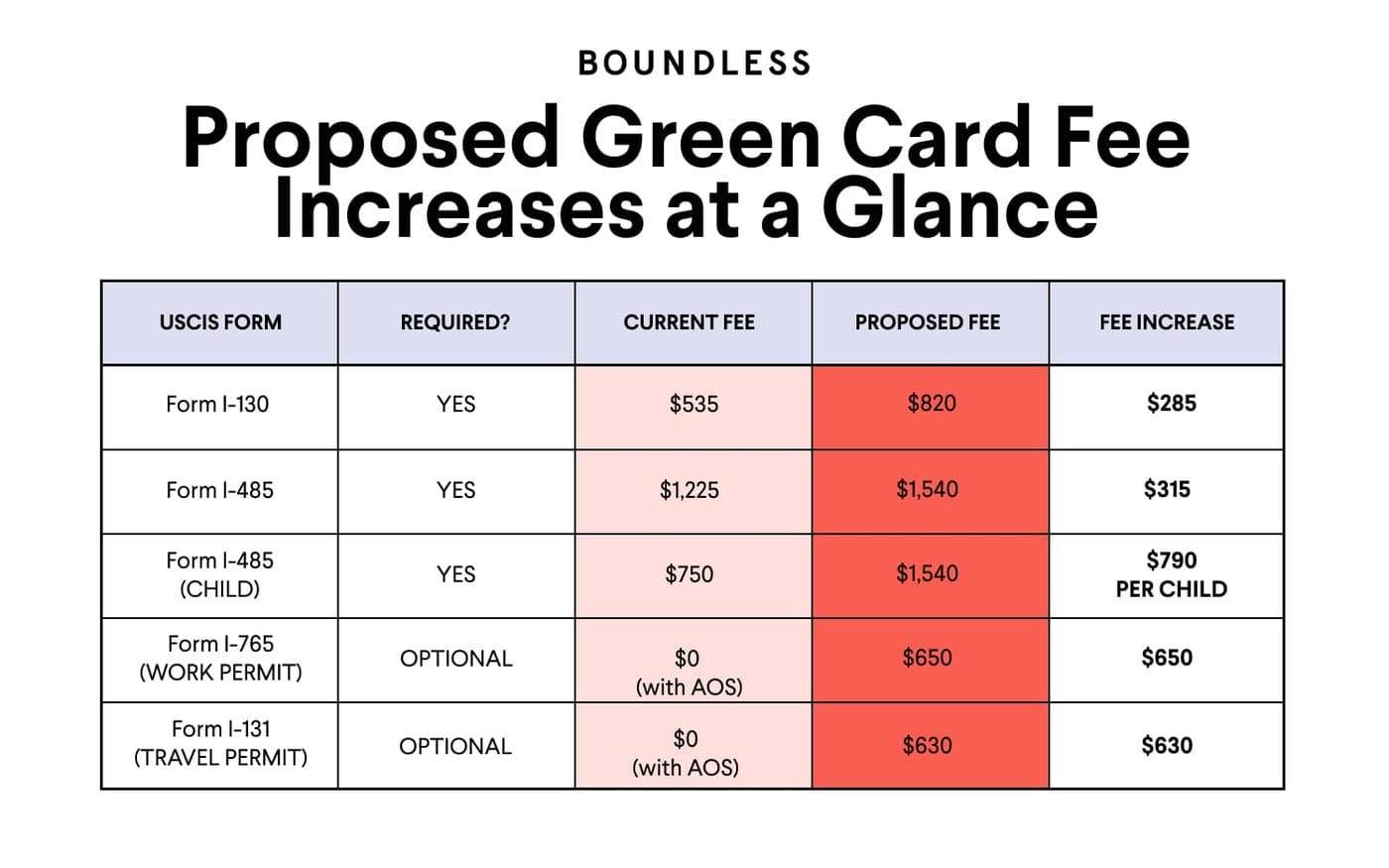It’s now been a year since the U.S. Citizenship and Immigration Services (USCIS) released a proposal to increase immigration costs for almost all visa categories. With the new fees not yet finalized, let’s take a look back at the USCIS fee increase proposal and what to expect in immigration costs in the coming year.
Who would be affected?
After six years of consistent government filing fees, the Biden administration propose an increase in immigration filing fees during the first week of January 2023. USCIS, which is funded primarily by filing fees, is required to review its immigration fee structure every two years, but new fees have not been introduced since 2016.
Overall, the proposal would keep costs for low-income immigrants and naturalization applicants low, but increase fees for almost all family- and employment-related applications.

Despite reduced barriers for low-income applicants and new citizens, adjustment of status application fees (green card) would skyrocket from the current $1,760 to $3,500. USCIS would also start charging for the optional service work And travel permit formswhich allow applicants to work and travel while their green card application is pending and they have long been free to file.
Work visas will also be significantly impacted if implemented: H-1B electronic filing fees could increase from $10 to $215 (a 2,050% jump). H-1B visa Application fees are also expected to increase by 70% once the proposal takes effect, which could impact the ability of U.S. employers to sponsor foreign workers in the future due to high costs.
Dealing with negative reactions
USCIS says the proposed fees will cover the agency’s operational costs and avoid future delays in applications, but immigration advocates and sponsoring employers have spoken out against the proposed increases over the last year . During USCIS’ 2023 public comment period, more than 6,000 individuals and organizations expressed concerns about these changes. You can read Boundless’ public comment to USCIS here.
What happens next
Once finalized, the fee increases will likely have a significant impact on the family and business immigration systems as a whole. Experts estimate that the new fees could come into effect as early as early 2024.
Stay tuned to our USCIS Fee Guide for all future updates!

